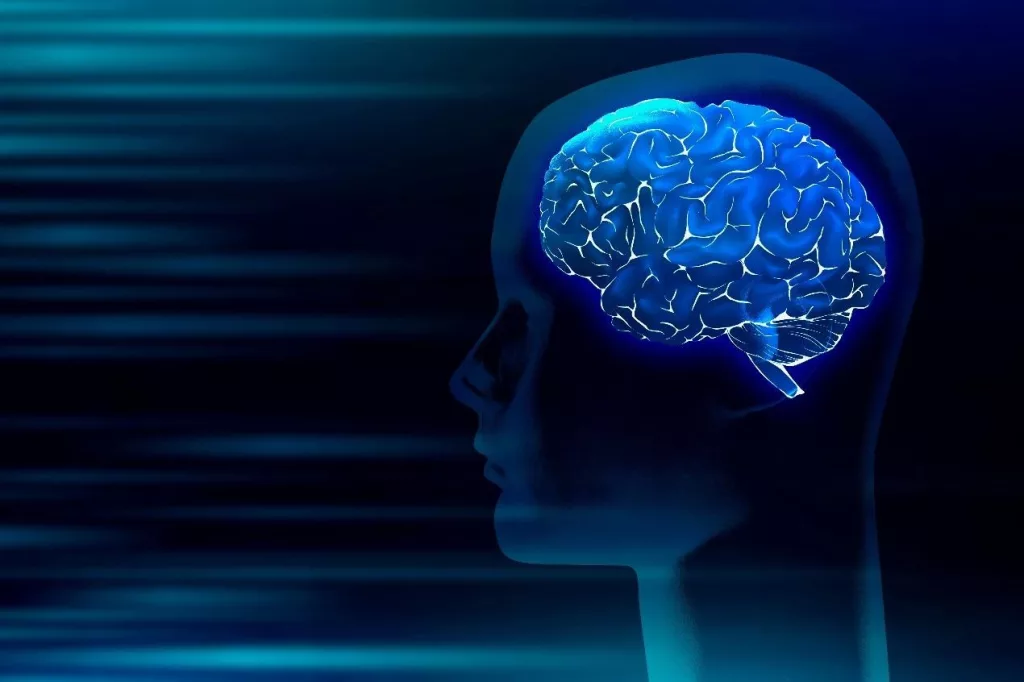Muscimol is a psychoactive substance that has been found to have potential therapeutic applications in the treatment of neurological and psychiatric disorders. It is a potent agonist of the GABAA receptor, which is the primary inhibitory neurotransmitter in the central nervous system. By enhancing GABAergic neurotransmission, muscimol has been shown to have anticonvulsant, anxiolytic, and antidepressant effects.
Essentially, muscimol is a potent compound found in Amanita muscaria mushrooms. When consumed, it can produce feelings related to euphoria and tranquility. This has made Amanita muscaria mushrooms an in-demand commodity in the psychedelics world. However, it’s essential to know that even if these mushrooms have compounds responsible for providing psychoactive effects, they also provide nutrients that the body needs to function correctly.
In that case, learning the anatomical traits of mushrooms with the help of reputable resource websites like Mushroom Revival can be an excellent idea. It can help you understand mushrooms’ general structure and the health benefits they can offer. For example, the muscimol compound found in Amanita muscaria mushrooms is said to help treat neurological and psychiatric disorders.
It’s essential to know that Neurological and psychiatric disorders are a major burden on global health, affecting millions of individuals worldwide. Despite the availability of various treatments, many individuals continue to experience significant impairment and disability due to these conditions. Therefore, there is a need for the development of novel and effective therapies.
Muscimol presents a promising avenue for the treatment of these disorders, given its ability to modulate GABAergic neurotransmission. This paper will provide an overview of the potential therapeutic applications of muscimol in the treatment of neurological and psychiatric disorders, specifically epilepsy, anxiety, and depression. The paper will also discuss the mechanisms of action of muscimol and its safety profile, and highlight future research directions in this field.

Mechanism of action of muscimol
Muscimol acts as a potent agonist of the GABAA receptor, which is the primary inhibitory neurotransmitter receptor in the central nervous system. When muscimol binds to the GABAA receptor, it enhances the activity of GABA by increasing the chloride ion influx into the neuron. This results in an overall inhibitory effect on neuronal activity, reducing the likelihood of the neuron firing an action potential.
The GABAA receptor is composed of five subunits, each of which has distinct effects on receptor function. Muscimol has a high affinity for the α1, α2, α3, and α5 subunits of the receptor, which are primarily expressed in the brain. This selective binding to specific subunits contributes to the specific effects of muscimol on neuronal activity.
Muscimol has been found to have anticonvulsant, anxiolytic, and antidepressant effects, which are thought to be mediated by its action on the GABAA receptor. In epilepsy, muscimol’s enhancement of GABAergic neurotransmission leads to the inhibition of excessive neuronal activity, which can result in the prevention of seizures. In anxiety and depression, muscimol’s ability to enhance GABAergic neurotransmission leads to an overall reduction in neuronal activity, which can result in the reduction of anxiety and depressive symptoms.
Overall, muscimol’s mechanism of action through its potentiation of GABAergic neurotransmission makes it a promising therapeutic agent for the treatment of neurological and psychiatric disorders.
Epilepsy
Epilepsy is a neurological disorder characterized by recurrent seizures that result from excessive and abnormal neuronal activity in the brain. Current treatments for epilepsy include anticonvulsant medications, surgical intervention, and in some cases, dietary changes.
Muscimol has been found to have anticonvulsant effects in animal models of epilepsy. Studies have shown that muscimol can reduce the frequency and severity of seizures by enhancing GABAergic neurotransmission, resulting in the inhibition of excessive neuronal activity. Muscimol has been particularly effective in the treatment of focal seizures, which are seizures that start in one area of the brain and can spread to other areas.
Muscimol has also been found to have a low potential for dependence and tolerance, making it a promising therapeutic option for the long-term treatment of epilepsy. However, further research is needed to determine the optimal dose and duration of muscimol treatment for epilepsy, as well as its safety and efficacy in human subjects.
Anxiety
Anxiety disorders are a group of psychiatric disorders characterized by excessive and persistent feelings of fear and anxiety. Current treatments for anxiety disorders include medications such as benzodiazepines and selective serotonin reuptake inhibitors (SSRIs), as well as psychotherapy.
Muscimol has been found to have anxiolytic effects in animal models of anxiety. Studies have shown that muscimol can reduce anxiety-related behaviors by enhancing GABAergic neurotransmission, resulting in the inhibition of excessive neuronal activity. Muscimol has been particularly effective in reducing anxiety in response to stressful stimuli.
One advantage of muscimol over traditional anxiolytic medications is its low potential for dependence and tolerance. Studies have shown that muscimol does not produce the sedative and motor impairment effects commonly seen with benzodiazepines.
However, further research is needed to determine the optimal dose and duration of muscimol treatment for anxiety disorders, as well as its safety and efficacy in human subjects.

Depression
Depression is a common psychiatric disorder characterized by persistent feelings of sadness, hopelessness, and loss of interest or pleasure in activities. Current treatments for depression include antidepressant medications such as selective serotonin reuptake inhibitors (SSRIs) and psychotherapy.
Muscimol has been found to have antidepressant effects in animal models of depression. Studies have shown that muscimol can increase serotonin and dopamine levels in the brain, which are neurotransmitters involved in regulating mood and emotions. Muscimol has also been found to increase the expression of brain-derived neurotrophic factor (BDNF), which is a protein involved in the growth and survival of neurons.
One advantage of muscimol over traditional antidepressant medications is its rapid onset of action. Studies have shown that muscimol can produce antidepressant effects within hours, whereas traditional antidepressants can take several weeks to produce therapeutic effects. Additionally, muscimol has been found to have a low potential for dependence and tolerance.
However, further research is needed to determine the optimal dose and duration of muscimol treatment for depression, as well as its safety and efficacy in human subjects.
Other neurological and psychiatric disorders
In addition to epilepsy, anxiety, and depression, muscimol has also been investigated for its potential therapeutic applications in other neurological and psychiatric disorders. These include:
Insomnia: Muscimol has been found to improve sleep quality and reduce sleep latency in animal studies. Studies have suggested that muscimol acts on GABA receptors in the brain to promote sleep.
Schizophrenia: Muscimol has been found to have antipsychotic effects in animal models of schizophrenia. Studies have shown that muscimol can reduce hallucinations and other positive symptoms of schizophrenia by enhancing GABAergic neurotransmission in the brain.
Substance use disorders: Muscimol has been investigated for its potential to reduce drug-seeking behaviors in animal models of substance use disorders. Studies have suggested that muscimol can reduce the reinforcing effects of drugs by acting on GABA receptors in the brain.
Neurodegenerative disorders: Muscimol has been found to have neuroprotective effects in animal models of neurodegenerative disorders such as Parkinson’s disease and Alzheimer’s disease. Studies have suggested that muscimol can protect neurons from oxidative stress and inflammation, which are thought to contribute to the development and progression of these disorders.
Further research is needed to determine the safety and efficacy of muscimol for these and other neurological and psychiatric disorders in human subjects. Nonetheless, muscimol presents a promising target for the development of novel therapeutic interventions for a range of neurological and psychiatric disorders.
Safety and side effects of muscimol
While muscimol has shown promise as a potential therapeutic agent, it is important to consider its safety and potential side effects. Some potential side effects of muscimol include:
Sedation: Muscimol acts as a sedative, and may cause drowsiness, fatigue, or lethargy.
Ataxia: Muscimol can impair coordination and motor function, leading to difficulty with movement and balance.
Hallucinations: Muscimol can cause visual or auditory hallucinations, particularly at high doses.
Cognitive impairment: Muscimol can impair cognitive function, including memory, attention, and decision-making.
Respiratory depression: Muscimol can cause respiratory depression, particularly when used in combination with other central nervous system depressants.
Dependence and withdrawal: Chronic use of muscimol can lead to tolerance, dependence, and withdrawal symptoms.
Allergic reactions: Muscimol can cause allergic reactions in some individuals, including rash, itching, and swelling.
It is important to note that the safety and side effects of muscimol may vary depending on the dose, route of administration, and individual patient factors. Further research is needed to determine the safety and efficacy of muscimol for various neurological and psychiatric disorders in human subjects.
Conclusion
Muscimol, a naturally occurring compound found in certain mushroom species, has shown potential as a therapeutic agent for various neurological and psychiatric disorders. Its mechanism of action as a GABA receptor agonist has been well-studied and its ability to modulate neuronal activity makes it a promising candidate for the treatment of disorders such as epilepsy, anxiety, and depression. However, the safety and potential side effects of muscimol must be carefully considered and further research is needed to fully understand its efficacy in humans. Overall, muscimol holds great promise as a potential therapeutic agent and further exploration of its therapeutic potential is warranted.
BenchChem scientists mentioned that future research may include clinical trials to evaluate the safety and efficacy of muscimol for various neurological and psychiatric disorders in humans. Such trials may investigate optimal dosing, routes of administration, and potential interactions with other medications. Additionally, research may also explore the use of muscimol in combination with other therapeutic agents or as an adjunct to existing treatment approaches.
In conclusion, the potential therapeutic applications of muscimol in the treatment of neurological and psychiatric disorders such as epilepsy, anxiety, and depression are promising. However, further research is needed to fully understand its safety and efficacy in human subjects. As research continues, muscimol may become a valuable addition to the armamentarium of treatments for these debilitating disorders.







